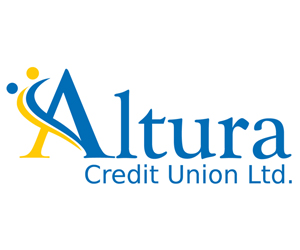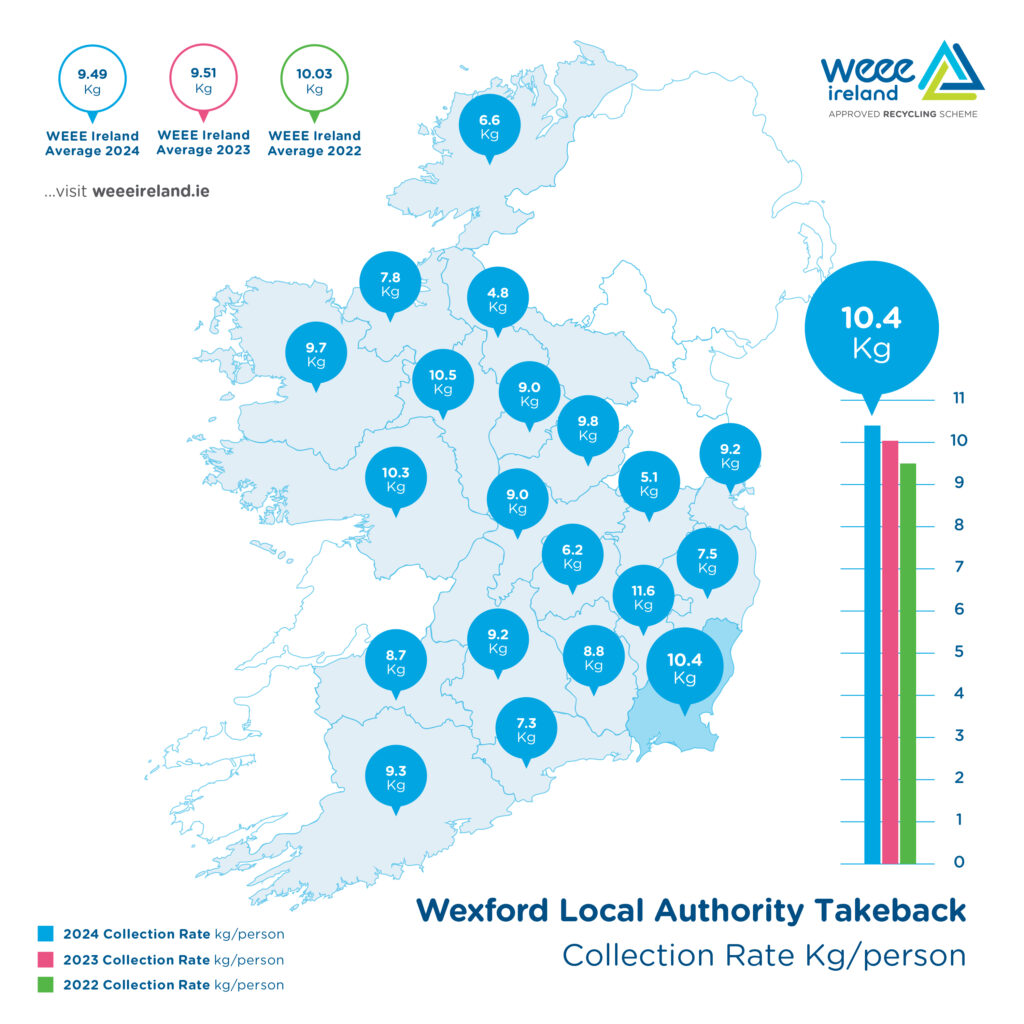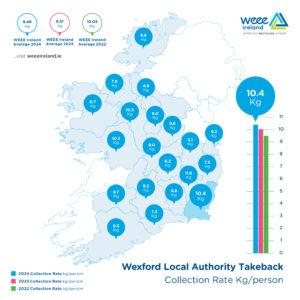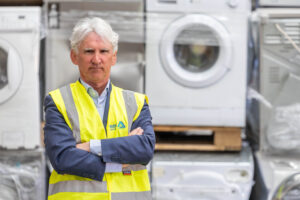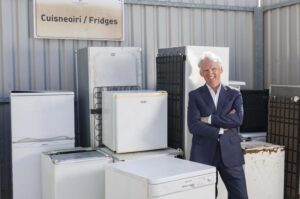Households in County Wexford recycled an impressive 10.4kg of electronic waste per person in 2024 — well above the national average of 9.5kg. That’s according to the latest WEEE Ireland Annual Report, which highlights the county’s role in tackling Ireland’s growing e-waste challenge.
From old phones to broken toasters, fridges, vapes, and dead batteries — Wexford residents are clearly doing their bit. But with record-breaking levels of electrical goods being bought nationwide, including an explosion in sales of vaping devices and solar panels, Ireland’s ability to keep pace with EU recycling targets is under pressure.
“Wexford has an engaged public and a high-performing recycling network,” says Leo Donovan, CEO of WEEE Ireland.
“With investment in local recycling centres, longer opening hours, and continued public participation, Wexford can lead the way for Ireland and Europe.”
Across Ireland, 93 million electronic items were purchased in 2024 — nearly three times the volume sold in 2006.
Among them were:
-
31 million vape and e-cigarette devices
-
2.5 million solar PV panels (installed over the past 5 years)
-
16.2 million small household appliances
-
258,000 TVs and monitors
-
72 million AA batteries worth of portable batteries
Donovan warns that many of these items, especially vapes, contain valuable and finite materials like lithium, copper, and cobalt — materials that need to be recovered and reused rather than lost to landfill.
“We’re using these materials faster than they can regenerate,” he said.
“Global demand is expected to triple by 2050. That simply isn’t sustainable.”
EU targets are based on the volume of electronics sold, regardless of how long they last or how reusable they are. This means products like solar panels — which won’t need recycling for 15–20 years — still count towards annual targets, skewing the numbers.
WEEE Ireland is calling for smarter, more circular thinking. That includes:
-
Recognising long-life products in recycling targets
-
Tracking online sales of electronics, many of which currently fall outside the system
-
Making reuse and repair more accessible for households
In 2024, 38,215 tonnes of e-waste were collected across Ireland, with a 96% material recovery rate — well above EU targets. This included:
-
Over 330,000 large appliances
-
119,000 fridges and freezers
-
1.1 million vape devices
-
1.9 million lighting units
WEEE Ireland continues to work with retailers, local authorities, and regulators to improve how this waste is captured, sorted, and reused.
This month, the Government allocated €27 million from the Circular Economy Fund to support this work, including more public collection events, education campaigns, and improved infrastructure.
How Wexford Can Stay Ahead
-
Recycle for free at your local civic amenity site or participating retailer
-
Use WEEE Ireland’s free public collection events (check www.weeeireland.ie for dates)
-
Repair or donate working electronics instead of throwing them out
-
Avoid putting e-waste in general bins — especially batteries and vapes
*** NO REPRODUCTION FEE *** WEEE Ireland CEO, Leo Donovan is calling for a national leap forward in “e-waste intelligence” as Ireland’s consumption of electronics balloons. Picture: Conor McCabe Photography *** NO REPRODUCTION FEE *** WEEE Ireland CEO, Leo Donovan is calling for a national leap forward in “e-waste intelligence” as Ireland’s consumption of electronics balloons. Picture: Conor McCabe Photography.
